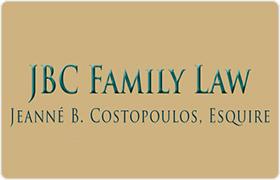Cumberland County, PA Divorce Lawyers
Sponsored Law Firm
-
 x
x

Click For More Info:
-
Law Office of Jeanné B. Costopoulos
1104 Fernwood Avenue Suite 104 Camp Hill, PA 17011» view mapDivorce & Family Law Experienced & Aggressive Representation
Attorney Costopoulos' practice is focused exclusively on family law and is known by her clients as patient, confident, always responsive and aggressive when needed.
800-497-8501
Includes: Alimony & Spousal Support
 Jeanné Costopoulos Camp Hill, PA
Jeanné Costopoulos Camp Hill, PA Practice AreasExpertise
Practice AreasExpertise
